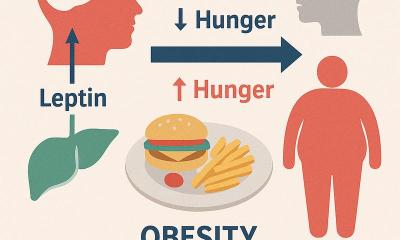The Norfolk Diabetes Prevention Study
Could advice from Type 2 diabetics prevent others from developing the disease? Report: Mark Nicholls
UK -- Family doctors (GPs) in Norfolk are inviting patients aged over 40, with a Body Mass Index above 30 and a family history of diabetes, to take part in the Norfolk Diabetes Prevention Study (NDPS). Funded by the National Institute for Health Research, the innovative £2.2million project will run for five years at the Norfolk and Norwich University Hospital (NNUH) and will involve 10,000 people at high risk of Type 2 diabetes.
The study researchers at the NNUH and University of East Anglia (UEA) are aiming to discover whether preventative changes to lifestyle can help reduce the risk of developing Type 2 diabetes.
Whilst they expect that most of the participants in the NDPS study will have normal blood glucose levels, 11% will be in the ‘pre-diabetes’ phase with a higher than normal Impaired Fasting Glucose level and at increased risk of developing the condition.
Those in the pre-diabetes phase will not only receive professional healthcare support but also advice on ways to improve their diet and lifestyle, to be given by 50 Type 2 diabetics to be recruited as Diabetes Prevention Mentors (DPMs).
The volunteers will be randomly allocated to an intervention group with DPM input, an intervention group without DPMs, and a control group where the aim will be for people to achieve 7% weight loss through a better diet and exercise. They will also receive education from sports physiotherapists and nutritionists.
The participants will have blood samples taken at the start of the study and then at 6, 12, 24 and 40 months.
Senior research associate Nikki Murray from NNUH said: ‘There’ll never be enough trained NHS staff to help all the people in Norfolk who have diabetes or are at risk of it. Using members of the public to help us is a novel aspect. We’re hoping the mentors will build a strong rapport with the participants, because they know what it's like having to make lifestyle changes. It’s a fantastic way for them to relate to each other in a way which some healthcare professionals won’t be able to do.’
Study chief investigator Professor Mike Sampson said: ‘We think this is an exciting study that holds a lot of promise for one of the big public health challenges of our time. The cost of diabetes care to the NHS is rising rapidly and if we can demonstrate that an interventional programme can help people from developing the condition, the savings in terms of the human costs and the financial cost to the NHS will be substantial.
‘We think that mass screening and intervention programmes to prevent diabetes could well benefit from having people with Type 2 Diabetes provide some of the training and support, and that it will be more efficient to deliver this in group training, so people can support each other.’
Diabetes is one of the biggest public health challenges facing the country. In England it is estimated 2.4 million people have the condition. About 80% of those with diabetes in England have Type 2 Diabetes.
20.06.2011











